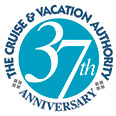Five Ways to Get the Best Exchange Rate Overseas
by Sarah Pascarella, SmarterTravel.com
Years ago, travelers' checks offered security, decent exchange rates, and ease of use; they were the preferred choice of Americans vacationing abroad. Nowadays, however, you may find things have changed. "They're more of a hassle than other methods of changing money," says Tom Brosnahan, travel writer, Travel Info Exchange, Inc. "They used to be the most convenient and safe way to change money, and now it really depends on the destination."
A few years ago, my mother and I were traveling in Italy, and she had decided to purchase some travelers' checks prior to departing the U.S. Once abroad, we found the checks were nothing but headaches: There were high exchange rates and plenty of fees to cash them in, and very few merchants accepted them in place of cash. The change bureaus that would take them tended to be located in touristy neighborhoods, and tacked on additional fees because they knew we had few options otherwise. The worst part? The checks were purchased in U.S. currency, so we had to pay to cash them out, then got charged once again to convert the dollars to euros. All in all, we spent a lot just to liquidize the checksmoney that could have been put to better use elsewhere.
"I don't use travelers' checks and haven't used them for years," says G.W. "Sandy" Ferguson, managing director, Asia Desk, Ltd. "A lot of merchants do not take them. It's almost like saying let me write you a personal check. The merchant has to pay more money percentage to cash that check than if they just take a [credit] card. They're much keener on that."
"Using travelers' checks is more complicated than it used to be," says Brosnahan. "You would take an AmEx travelers' check to any bank in Europe and they would exchange it, and they would take two or three percent. Now it's eight or nine percent. It's hard to know what you're going to pay for the money before you actually do it ... In places like Turkey, you have to take them to a bank, and not just any bank. Very few will deal with them anymore. You have to take them to a particular physical branch, not a central one, which is a real hassle and not necessarily convenient to where you are going to be."
"Basically, why would you want to give those nice folks in the blue box so much of your money in advance?" asks Ferguson.
Nowadays, most worldwide travelers tend to use plastic: debit/bank cards for ATM cash withdrawals, and credit cards for purchases and cash advances. Don't go forth without some preliminary research into your cards, though, as each bank has a host of fees, restrictions, and individual policies that could take a big chunk out of your budget.
Before You Go
Once you've booked your trip abroad, do some research into the region's money exchange services to determine the best method for your vacation. A one-size-fits-all approach to money is no longer valid, and each area may have a particular service that works best (as well as have specific roadblocks or impediments to changing money).
Areas for research:
* Available services: A query for your destination plus "currency exchange" on search engines yields multiple results, from official guidebooks to traveler forums. Browse these results for what's readily accessible in the part of the world you're planning to visit. Make use of the traveler forums: Many are updated regularly and can get you real-time facts (rather than possibly outdated information from guidebooks). If ATMs are the preferred way to exchange money, which bank networks are most prevalent? What local fees are in place? Is U.S. currency widely accepted?
* Call your bank(s): If you're planning on using your ATM and/or credit cards, call your bank(s) and let them know you're going to be overseas; that way they won't put a hold on your card, and you won't have any difficulty with transactions. While you're on the phone with them, inquire about the fees for using your cards abroad. Once you know what the charges are across all your cards, you can determine which will be the most advantageous (and affordable) for you to use while you're on vacation. Not sure which card to take? Check out our Editors' Choice Award for Best Travel Rewards Card for Overseas Use.
* Know what the fees are, regardless of change methods: Will you be using your credit card for cash advances or just for retail purchases? Know that the fees may differ by transaction type. Will you be converting travelers' checks at a hotel, bank, merchant, or cash exchange bureau? Do some research to see which methods are the most economical.
In Country
Once you're on the ground, be sure to stay up to date with exchange rates. Each day, take note of what the latest exchange rate is using a service such as XE.com (also available on the go for your smartphone). When you know what the daily standard exchange rate is, you can avoid places that charge higher fees.
Additionally, consider cash. "What's really the most efficient is cash," says Brosnahan. "[You can take] U.S. dollars, which you can then use if they're accepted or get them changed there. I carry not a huge amount of cash, but more than people normally think of, and always keep it in a neck pouch or waist belt under my clothes. I've found it's been pretty safe." Ferguson also recommends cash, and tends to travel with between $200 and $500 in U.S. dollars.
Regardless of what form of currency you use, if you do your research in advance and stay informed in-country, you should be well prepared for your trip.
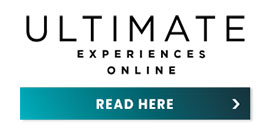
With each issue of Ultimate Experiences Online, you’ll enjoy a collection of articles, slideshows and videos that we will inspire you to make your travel dreams a reality.
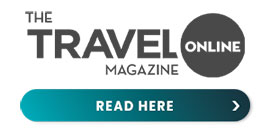
To help you discover ways to explore the world, we're pleased to share our The Travel Magazine Online.
 Save money and escape the crowds. Hot Deals and multi-port packages. Savings of up to 50%!
Save money and escape the crowds. Hot Deals and multi-port packages. Savings of up to 50%!
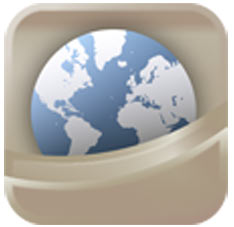
Our free app that allows you to carry all of the destination information you need while traveling, right in your pocket!
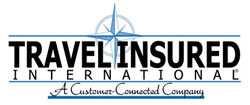
We recommend optional travel insurance that protects you in the event of having to cancel your trip avoiding travel vendor cancellation policies and more!

